During fast and fast food, stomach diseases spread rapidly. After all, nutrition is almost decisive for gastritis, pancreatitis and ulcers. This material tries to learn what a diet is for gastritis, pancreatitis or ulcers, what to do to treat them further, and how to eat properly.
What is important
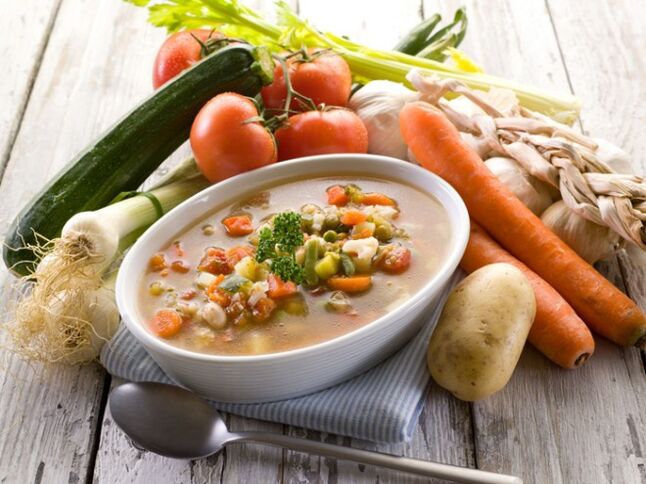
The question of why diet is important for gastritis often means something else: "What can you eat with gastritis, pancreatitis or ulcers, and what foods should be avoided? " With the exacerbation of gastritis symptoms, each diet is not only a description of the disease, but alsodictates a number of rules regarding the preparation and timing of meals, which are an integral part of the treatment of both pancreatitis and peptic ulcer. In other words, diet is the most important part of almost every stage of treatment of gastritis, pancreatitis and gastric ulcers.
For gastric gastritis, the diet should be balanced and gentle, for this purpose the diet for acute gastritis is subject. Strict adherence to it will help to avoid unbearable abdominal pain or other symptoms of gastrointestinal diseases, will help to stop the inflammatory process in the gastric mucosa, and treatment will be moderate.
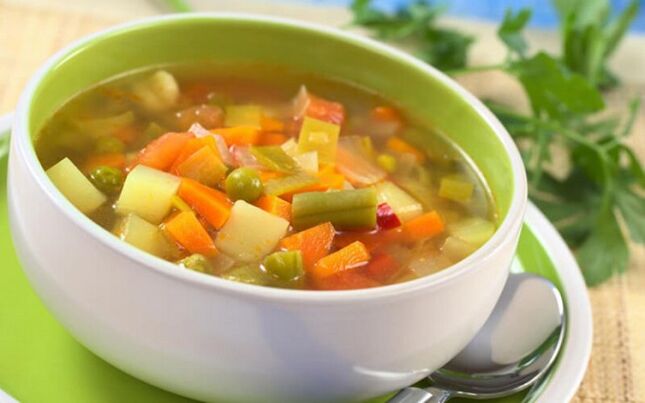
Diet for gastritis means:
- fractional meals;
- monitoring the temperature of consumed products;
- proper preparation of meals for the patient;
- abstinence from alcohol and carbonated beverages, tobacco;
- selection of simple dishes without preservatives and hot sauces;
- removal of spices and seasonings from the menu;
- food should be chewed thoroughly.
Any diet for the exacerbation of gastritis, pancreatitis or ulcers, calculated for a week or more, will not be useful if you do not follow the rules of a healthy lifestyle (giving up bad habits and regular physical education and sports). Only if these conditions are met, the diet for gastritis developed by a nutritionist will give the expected result, and the treatment of this organ, as well as the symptoms accompanying the disease, will be minimized.
What products can you make
Some foods have anti-inflammatory properties or do not irritate the stomach. How the food is prepared is also important, because the preparation of food affects their acidity. A dietary supplement for inflammation of the gastric mucosa also regulates the frequency of meals. With a history of stomach diseases (pancreatitis, gastritis, ulcers) you should sit at the table at least five times a day.
In this case, you should not engage in gluttony, if you are not satisfied with your food, it is better to continue after a while. When low or high acidity of the stomach causes inflammation of the mucous membranes (gastritis), you should pay attention to the temperature of the dishes that make up the menu. Very hot or cold foods are not recommended for stomach ailments. The food should be warm, so it is less irritating to the gastrointestinal mucosa and does not cause symptoms of gastric diseases.
When choosing a menu for gastritis, the amount of hydrogen ions in the stomach, in other words, the acidity should be taken into account. For example, fried, fatty and spicy foods, pickles, as well as home-made canned food are equally contraindicated for free inflammation of the stomach with high and low pH damage to the gastrointestinal tract of the digestive tract.
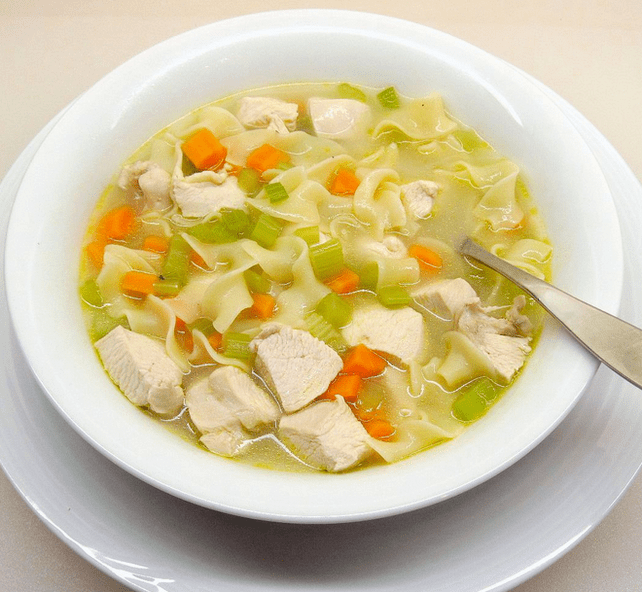
In many ways, the digestive system's response to food depends on its consistency. To aggravate gastritis, foods should be mainly liquid, puree, and in extreme cases, grated. In this form, the esophagus passes faster, preventing the symptoms of gastric diseases (pancreatitis, gastritis, ulcers). Specifically, a nutritionist or individual nutrition coach will tell you what to eat for gastritis, and the task is also to prepare a list of foods for a diet meal for a week or longer. A person with a medical degree should also be involved in the treatment of gastrointestinal diseases.
At high pH
So what can you eat with gastritis, pancreatitis or ulcers, which have increased acidity of the stomach, so that the symptoms of these diseases appear as rare as possible. The main task of the diet for inflammation of the gastric mucosa is to minimize the consumption of foods that pose a threat to it mechanically, chemically and thermally. For patients with gastritis, pancreatitis or ulcers, it is no longer said about the heat of food, we repeat, those who suffer from stomach ailments should be excluded from the diet of excessively hot or cold foods.
Excessively rough foods, cabbage, radishes, turnips or undercooked cereals and bran bread can damage the mucous membrane of the gastrointestinal tract, you should get used to eating without it. Such foods increase the symptoms of diseases including gastrointestinal ulcers, pancreatitis and gastritis.

Chemical irritants in inflammatory processes in the stomach are:
- all kinds of alcohol;
- sweet confectionery;
- oily broths;
- soda;
- garlic and onion, which are useful at first glance;
- unripe fruits;
- sour juices;
- black bread.
In cases of exacerbation of symptoms of gastritis, ulcers or pancreatitis, abuse of such products can lead to long-term treatment of these diseases.
PH lowered
The list of foods that make up the diet for gastric diseases (pancreatitis, ulcers or gastritis) should start with the fact that you can not eat with gastritis with low gastric acidity, such foods are less common. Foods that are difficult to digest due to inflammation of the mucous membranes of the digestive tract, fish and meat with high fat content, smoked foods and canned foods are prohibited. If you do not want to spend time and money to treat stomach ailments, such as pancreatitis or ulcers, you should also quit smoking.
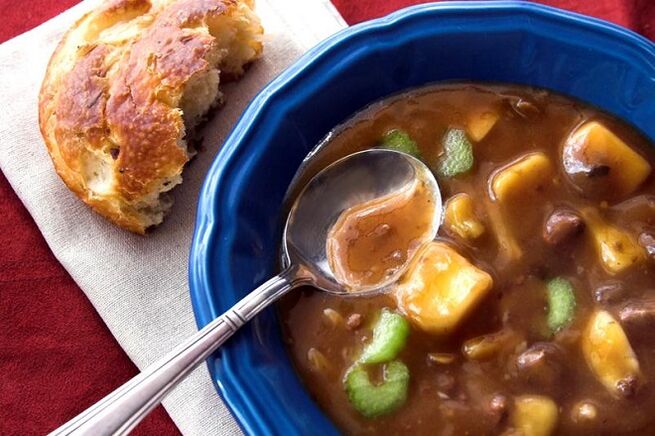
The following foods are recommended for a complete meal:
- rabbit meat;
- some types of poultry (chicken, turkey);
- dairy products;
- baked fruits (apples and pears);
- onions, garlic and sour berries;
- some juices, such as birch.
Such food increases the acidity of gastric fluid and prevents the manifestation of symptoms of gastrointestinal dysfunction. Therefore, no treatment is needed.
Menu for the week
There is a category that suffers from stomach ulcers, pancreatitis or gastritis due to lack of time to organize a diet meal for at least a week. For such people, a list of meals for seven days is offered:
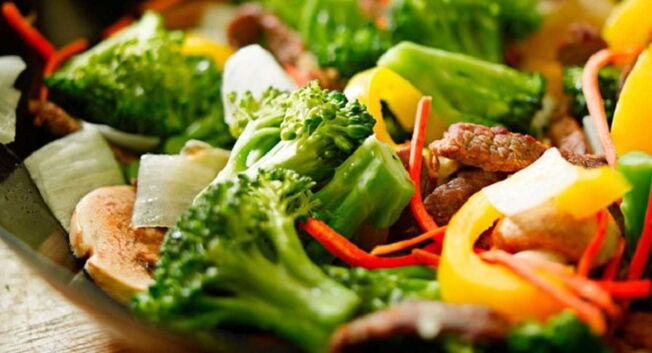
- 1st and 3rd days.For breakfast, you can eat a portion of Hercules and a glass of compote. Lunch will consist of several steamed cheesecakes. For dinner, we recommend mashed potatoes, vegetable soup with bread crumbs, boiled fish and compote. You can drink a cup of tea with unleavened biscuits between lunch and dinner. Cutlets, spaghetti and tea are excellent.
- 2nd, 4th and 6th day.You should start the morning with a baked apple with a piece of cheese cake. You should limit yourself to jelly while waiting for dinner. Vegetable soup, steamed fish and still mineral water will be useful for lunch. For those who love lunch, sugar-free tea with bread crumbs can be recommended. You can prepare cottage cheese casserole and jelly for dinner.
- 5th and 7th days.You can start the day with a boiled boiled egg and a glass of compote. The second breakfast should consist of cheese cakes and tea. In the middle of the day, vegetable casserole, mashed potatoes and jelly will not hurt. For an afternoon snack, you can offer fruit puree, part kefir and crackers. It is suitable to prepare porridge, boiled fish and a glass of hip juice for dinner.
Do not eat such a diet, you do not need treatment for symptoms of gastritis, ulcers or pancreatitis.































